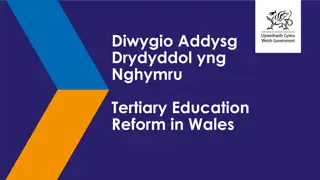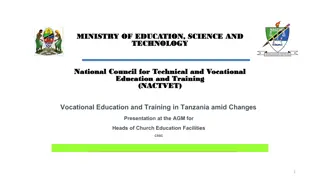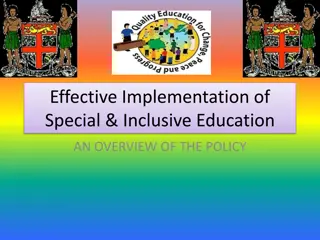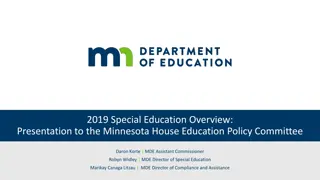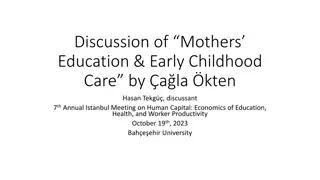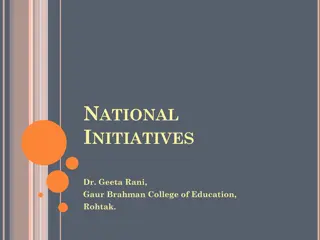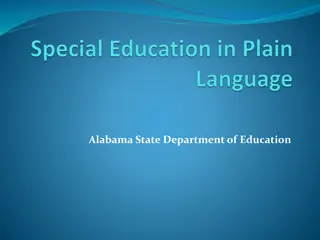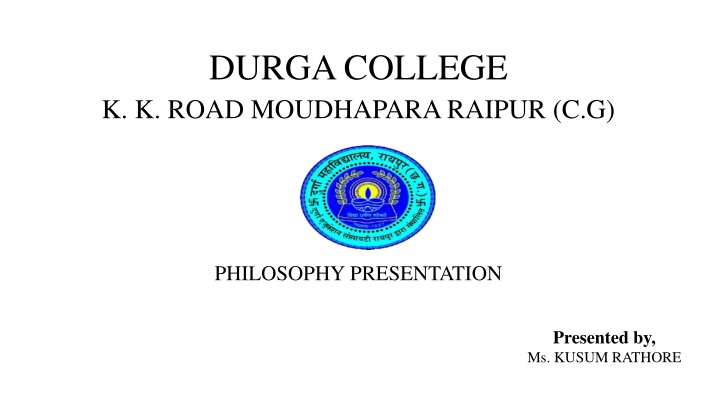
Philosophy of Education: Diving into the Nature and Objectives
Explore the rich traditions of education in Ancient and Medieval India, unraveling the nature of education as a lifelong process. Understand the types of education, its objectives, and the evolution of educational systems. Delve deeper into formal and informal education, and discover the multifaceted nature of education in shaping individuals.
Uploaded on | 0 Views
Download Presentation

Please find below an Image/Link to download the presentation.
The content on the website is provided AS IS for your information and personal use only. It may not be sold, licensed, or shared on other websites without obtaining consent from the author. If you encounter any issues during the download, it is possible that the publisher has removed the file from their server.
You are allowed to download the files provided on this website for personal or commercial use, subject to the condition that they are used lawfully. All files are the property of their respective owners.
The content on the website is provided AS IS for your information and personal use only. It may not be sold, licensed, or shared on other websites without obtaining consent from the author.
E N D
Presentation Transcript
DURGA COLLEGE K. K. ROAD MOUDHAPARA RAIPUR (C.G) PHILOSOPHY PRESENTATION Presented by, Ms. KUSUM RATHORE
Education The Word education is derived from the Latin word educo which means to educate, to bring up, or two raise education is a continuous lifelong process. It is never ending it is start with the birth of an individual and then it goes on till the last day of the individual. man become men through education. He learn something at every moment and on every day. It is a life long process . It is both theoretical and practical
Types of Education Formal Education Formal education refers to the structured and organized learning takes place institution. It also refers to the basic academic knowledge that a child learns in formal manner. such education is provided by especially qualified teachers who are sufficient in a with art of instruction. Exp.- classroom class room learning definite proper syllabus. Informal education it occurs outside of traditional classroom settings and often involves learning through daily experiences. Examples: Reading Books, Online Learning Platforms, Travel and Cultural Experiences, Community Involvement, Conversations and Discussions, Observation of Nature, etc. planned education with a
Nature of Education 1. Social process of education 2. Dynamic process of education 3. Education bipolar process 4. Continuous process of education. 5. Process of education development. 6. Education All-round development process
Objective of Education The objectives of education are multifaceted, reflecting the complex nature of preparing individuals for a diverse and interconnected world. It includes: Knowledge Acquisition Critical Thinking Skills Skill Development Character Development Social Integration Cultural Understanding Personal Growth Economic Empowerment Global Awareness Adaptability
Education in Ancient India Education in ancient India had a rich and multifaceted tradition that dates back thousands of years. It laid the foundation for a holistic approach to learning, integrating spiritual, intellectual, and practical aspects of life. It Includes: Gurukul System Vedas and Scriptures Varied Subjects Oral Tradition Caste-based Education Ashram System Focus on Moral Values Universities and Centres of Learning- Takshashila and Nalanda Practical Application
Education in Medieval India During medieval times in India, education continued to be an integral part of society, with certain evolutions and developments. Despite challenges and changes, education in medieval India retained its diversity, with the coexistence of various educational traditions influenced by both indigenous and foreign elements. Key features: Madrasas and Maktabas Gurukuls and Brahminical Learning Persian Influence Libraries and Manuscript Culture Development of Vernacular Literature Sufi and Bhakti Influence Role of Temples and Mathematics Decline of Some Traditional Centres Educational Patronage
Education in Modern India In modern India, the education system has undergone significant transformations with the influence of colonial rule, independence, and subsequent socio-economic developments. Ongoing reforms seek to address current challenges and shape a more inclusive and dynamic educational landscape. Key features: British Influence Macaulay s Minute (1835) Wood s Despatch (1854) - Magna-Carta of English Education in India. University System Hunter Commission (1882) Indian Education Act of 1901 Sargent Plan (1944)
Post-Independence Reforms in Education These reforms reflect the ongoing efforts to address the diverse needs of India s education system, promoting inclusivity, quality, and relevance to the changing socio-economic landscape. Key points: University Education Commission (1948-1949): (Radhakrishnan Commission) Kothari Commission (1964-1966)-introduction of a 10+2+3 system. National Policy on Education (1968) National Education Policy (1986) Sarva Shiksha Abhiyan (SSA) Education for All (2001)- 6-14 age group Right to Education Act (2009) National Skill Development Mission (2015) National Education Policy (NEP) 2020 5+3+3+4 structure
Conclusion The journey of education in India has been marked by a rich tapestry of historical, cultural, and socio-economic influences. From ancient Gurukuls to the colonial-era reforms and post-independence initiatives, education has evolved significantly. The traditional systems laid the foundations for holistic learning, emphasizing not only academic knowledge but also moral and spiritual development. The British colonial period introduced a formalized structure with an emphasis on English education, leading to the emergence of a Western-educated elite. Post-independence, India undertook ambitious reforms to democratize education, striving for universal access and quality. Despite progress, challenges remain, including issues of accessibility, quality, and regional disparities. Ongoing reforms seek to address these challenges.





